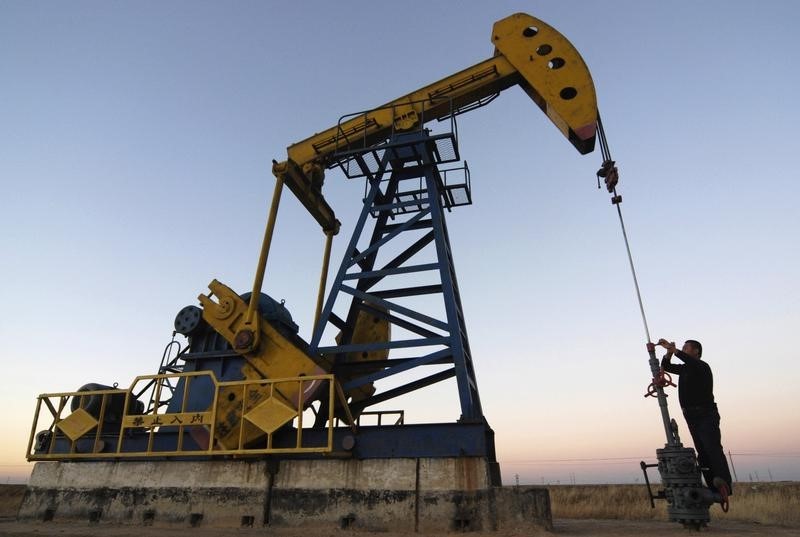Oil prices tick down amid oversupply worries; China factory data shows resilience
- May 18, 2025
- Category: Futures

Investing.com-- Oil prices ticked lower in Asian trading on Monday after weekly gains, as oversupply concerns persisted amid U.S.-Iran nuclear talks, while investors assessed Chinese factory data showing resilience despite the effect of U.S. tariffs.
Investors were also cautious as the global ratings agency Moody’s downgraded its investment grade rating on the U.S.
As of 23:23 ET (03:23 GMT), Brent Oil Futures expiring in June inched 0.3% lower to $65.20 per barrel, while West Texas Intermediate (WTI) crude futures also fell 0.3% to $61.77 per barrel.
Both contracts gained more than 1% last week, driven by a surge at the start of the week, when the U.S. and China agreed to temporarily lower soaring tariffs placed on each other.
However, most of these gains were offset by oversupply concerns around the potential US-Iran nuclear deal and increased supply from OPEC+.
Oversupply concerns, Moody’s US downgrade, Trump-Putin talks in focus
Moody’s downgraded the U.S. sovereign credit rating on Friday to Aa1 from Aaa, lowering it one notch from the top-tier rating.
The agency cited concerns over the country’s ballooning $36 trillion debt, an issue that could worsen under President Trump’s proposed tax cuts.
This led to a cautious sentiment among oil traders, who were already grappling with developments leading to a potential increased supply.
Trump said last week that the U.S. was getting very close to securing a nuclear deal with Iran, and Tehran had "sort of" agreed to the terms.
The signing of a deal and the removal of sanctions could see Iranian oil returning to the market in force, potentially loosening the global crude supply-demand balance.
For the day, "much of the attention is on a scheduled call between President Trump and President Putin about the Russia-Ukraine war," ING analysts said in a note.
"Fundamentally, though, even if we were to see a peace deal and the eventual lifting of sanctions against Russia, there would only be a limited increase in supply," they added.
Moreover, the International Energy Agency (IEA) said on Thursday that global oil supply will rise faster than previously expected this year as OPEC+ members unwind output cuts.
The body also estimated that global oil demand growth will slow for the remainder of the year.
Chinese industrial production beats estimates, retail sales lag
Markets digested Chinese industrial production and retail sales data for April, released on Monday.
Industrial production rose more than anticipated in April, with factory activity holding up well despite pressure from heightened U.S. trade tariffs on exports.
However, domestic demand showed signs of weakness, as retail sales for the month came in below expectations.
Investors were looking for signs of recovery in the world’s largest oil importer, as it grapples with weak economic growth and tariff tensions with the U.S.
Although Washington and Beijing have announced a 90-day reprieve on steep tariffs, worries remain around further negotiations.

